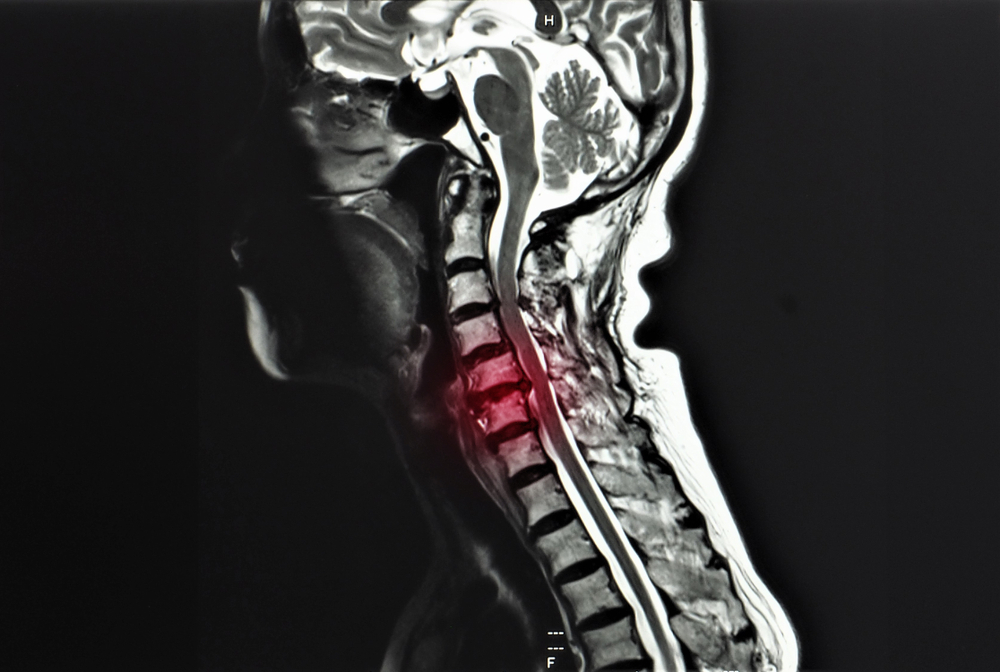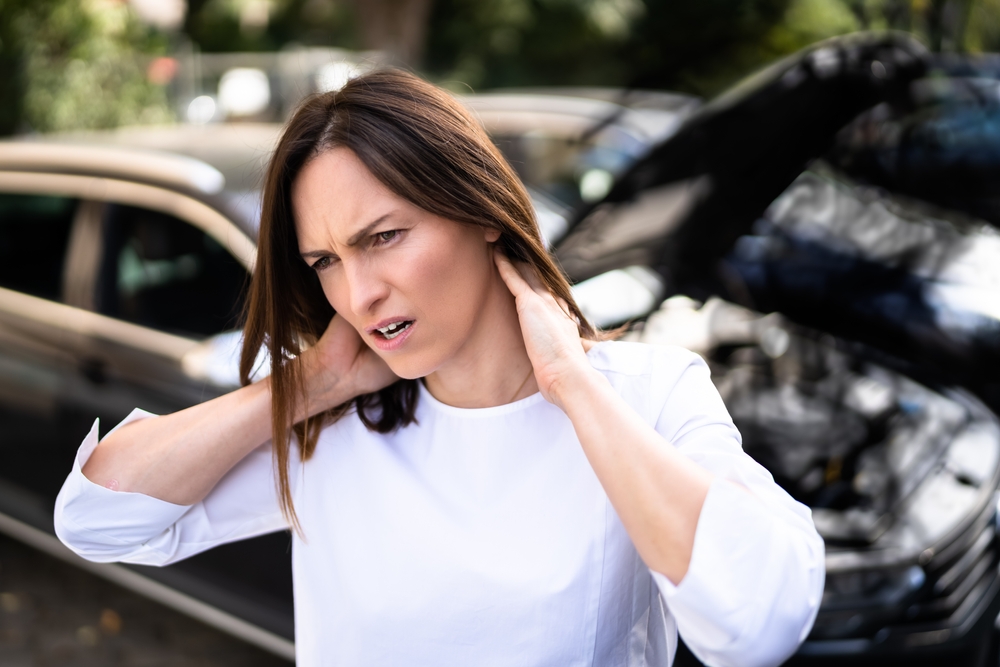Car accidents occur for a wide range of reasons. Vehicle malfunctions, bad weather, or a lack of attention to the road are some of the most common causes of accidents.
Even crashing at a slow speed can cause you an injury such as whiplash. It is important to understand how car accidents can affect you and even trigger neurological conditions.
Additionally, if you’ve been in an accident, it’s important to know how to find the best neurologist in NYC.
Do Car Accidents Trigger Neurological Disorders?

Many car accidents cause neurological conditions, which is why it is so important to see a car accident doctor after you’ve been in a wreck. Chances are that you’ll feel a few aches and pains right away, but neurological issues can show up weeks after the car accident occurs.
If your cognitive abilities seem to be diminishing, such as trouble with reading or memory which you never had before, you may be suffering from a car accident-related neurological problem. It is important to see a neurological specialist as soon as possible.
What Types of Nerves Are in the Body?
There are three main types of nerves in the body. Autonomic nerves control the automatic impulses of the body which regulate breathing, digestion, blood pressure, and heart rate.
Motor nerves innervate the muscles of your body. They control your arms and legs and if they are damaged, they may cause your muscles to become weak or spasm.
Finally, there are sensory nerves. Sensory nerves report information to your brain. These nerves carry information about touch, pain, and temperature sensation.
What Types of Neurological Disorders Can a Car Accident Cause?
The nervous system is home to two primary systems. The central nervous system includes the brain and the spinal cord. The peripheral nervous system includes the nerves that link the brain and spinal cord to the limbs and other parts of the body.
Injuries to the nerves can cause you to develop balance problems or numbness or pain in the feet and hands. There are several types of neurological conditions that a car accident may cause.
Traumatic Brain Injury (TBI)

Frequently, a motor vehicle accident causes a traumatic brain injury. A TBI may occur because the brain shifts so quickly that it hits the skull, or a physical object hits the head. Someone who suffers a TBI may experience brain bleeds or bruising, which may then lead to both short- and long-term problems.
A traumatic brain injury is a complex brain injury that has a wide variety of symptoms. It is also important to note that no two TBIs are exactly alike, which means the symptoms will be different from person to person. Mild TBIs may include only temporary symptoms, but a more serious traumatic brain injury can cause long-term or even permanent symptoms.
There are several symptoms to look for if you suspect that you have a TBI. Loss of consciousness is common but doesn’t happen to everyone so it is important to know what other symptoms to look for.
Someone who is experiencing a TBI may become disoriented or confused, experience nausea or vomiting, and feel extreme fatigue or insomnia. Other common symptoms of a traumatic brain injury include ringing in the ears, problems with vision, being sensitive to light or sound, changes in mood, or feeling depressed or anxious. Severe TBIs may cause seizures, persistent headaches, pupil dilation, unusual behavior, or fluid draining from the nose and ears.
Neuropathy
Neuropathy is another common neurological disorder that results from a car accident. Neuropathy affects the peripheral nervous system, which is every nerve in the body that isn’t part of the spinal cord or brain. Symptoms of neuropathy include numbness and tingling, weakness, and a prickling sensation. It typically occurs in relation to a broken bone but may appear for other reasons, too.
Radiculopathy

Radiculopathy, it occurs when something damages or compresses the spinal column’s nerve root. Symptoms include pain, weakness and numbness. You may experience radiculopathy if you have compression of the spinal nerve roots in the lower back or neck. Radiculopathy may occur after a car accident even if there were no external injuries. If you are experiencing these symptoms, you should make an appointment to see a neurologist.
Ataxia
One common diagnosis after a car accident is ataxia. Ataxia causes difficulty with walking and balance. The subject will be clumsy and uncoordinated. An injury or damage to the cerebellum will cause ataxia. The symptoms of ataxia often resemble being drunk or drugged. Someone who develops ataxia may lose muscle control, slur their speech, fall, or have trouble walking. If you develop ataxia as the result of a car accident, your neurologist will probably diagnose it as acute cerebellar ataxia.
There are early signs that ataxia may be developing. If you notice that your eyes are moving involuntarily, that your speech patterns are changing, or that you’re having trouble with tasks like swallowing, writing, or eating, then it is important to seek medical attention immediately.
Lumbar Disc Disease

Lumbar disc disease is also common after a car accident. Often referred to as a herniated disc, the disorder is commonly caused by car accidents. A herniated disc is a spine injury. Tiny bones known as vertebrae make up your spine. Each one has a rubbery, cushioned disc between it. This prevents the vertebrae from rubbing against each other and causing discomfort.
A herniated disc means that it’s nuclear material has bulged out from the disc and it is pushing into the surrounding nerves. The result may be minimal pain but can also cause severe pain.
A herniated disc may also cause sciatica, which is pain that starts in the lower back and radiates into the buttock(s), legs and feet. Lumbar disc disease will not repair itself on its own and typically requires ongoing chiropractic treatment and/or physical therapy.
Ways That a Car Accident Can Impair Neurologic Function

Car accidents can cause neurologic functional problems in several ways. In fact, they are one of the leading causes of neurological disorders that are not hereditary or congenital. According to the Centers for Disease Control and Prevention (CDC), car accidents are the leading reason that people between the ages of 16 and 64 develop neurological injuries.
Hundreds of situations can cause injuries during an accident, but some reasons are more common than others. Often, the force of a collision at high speeds causes the neck to shake violently back and forth, causing whiplash that could also damage the brain because it will hit the insides of the skull.
Another common cause of neurological conditions related to car accidents is airbag deployment. When the deployment is too forceful, it may cause damage to the spinal cord. Finally, seatbelt restraints may prevent the ejection of a passenger during a car accident, but they can also cause serious damage to the neck, spine, and abdominal area. This could cause fractures to the clavicle, cervical spine, thoracic spine, and lumbar spine.
Can a Car Accident Cause Brain Injuries?
Car accidents often cause brain injuries that require diagnosis and treatment from the top neurologists in NYC. There are several different types of possible brain injuries.
- Concussion – The most common type of brain injury is mild and known as a concussion. This often is the result of hitting your head and a brief loss of consciousness.
- Diffuse Axonal Injury – A type of brain damage, diffuse axonal injury occurs when the brain’s nerve fibers experience a violent movement that causes them to tear or shear off. If the injury is too severe, the person often goes into a comatose state.
- Contusion – A contusion occurs when the brain experiences trauma that causes bruising on the brain tissue.
- Traumatic Subarachnoid Hemorrhage – A medical emergency. A traumatic subarachnoid hemorrhage occurs when there is bleeding in the space between the brain and the membrane that surrounds it. The hallmark is a sudden severe headache. If left untreated, this type of injury can cause permanent brain damage or even be fatal.
Do Whiplash Injuries Cause Neurological Disorders?

Sometimes, a person suffers from whiplash after a car accident. It occurs when the head and neck suddenly move back and forth during the impact of a car accident.
This can also cause the brain to suddenly move and cause bruising, nerve stretching, and more. This is why whiplash is often a cause of neurological conditions that require the help of a car accident doctor.
Whiplash may not show symptoms for hours or even days, so it is important to pay attention to symptoms such as pain or headaches.
What Are the Symptoms of Neurological Issues?

There are a wide variety of symptoms when it comes to neurological conditions. Symptoms include atrophy of muscle tissue, excessive sweating (or an inability to sweat at all), numbness and tingling in the hands or feet, pain, and feeling weak.
Other signs that a neurological issue may be present include bladder problems, lightheadedness, dizziness, paralysis, or involuntarily twitching. Some people may also experience uncontrolled muscle movements or increased sensitivity to hot or cold temperatures.
How Is Neurological Function Impacted By a Car Accident?
A car accident may impact neurological function in a number of ways. The most important nerves in the body are in the spine and a car accident can injure them due to broken bones, head injuries, or spinal misalignment. It can affect how you move, your pain levels, and more.
Why Is It Important To See a Neurologist After a Car Accident?
Seeking medical treatment after a car accident is vital. Even if you feel okay now, there may be an indication of a concussion or serious head injury that a neurologist can detect. A car accident doctor who treats these types of injuries can also check for signs that there is compression or any other type of injury to the spinal cord.
How Are Neurological Conditions Diagnosed?
If you suspect that you’re dealing with a neurological condition, it’s important to determine what your diagnostic and treatment options are through clinical neurophysiology and diagnostic techniques.
A car accident doctor who receives training for such injuries will first review your medical history, such as your overall health, symptoms, and whether your family history includes neuropathy. Current or recent medication, exposures to toxins, and your sexual and alcohol history are also important factors.
After gathering your medical history and various other information, the neurologist will examine your skin, check your pulse in different parts of your body, and check your reactions to different sensations and stimuli. He or she will also examine your tendon reflexes and use a tuning fork to test your reaction to vibratory sensations.
When your doctor narrows down the source of your chronic pain, he or she may perform an electromyography test, or perform nerve conduction studies. When he or she finds the cause of the neuropathy, treatment options will target that cause.
How Do You Find the Right Car Accident Doctor in New York, NY?
Doctors that focus on treating people who have been in car accidents have a more thorough understanding of the type of trauma that the body goes through when there is a sudden violent impact. When searching for your neurologist or car accident doctor, seek out someone who has experience in providing treatment for car accident victims.
Find a Car Accident Doctor To Help You With Your Neurological Conditions

Were you in a car accident recently? Do you suspect that you may be suffering from one of the neurological conditions listed above? Do you think you may have any other neurological conditions like carpal tunnel syndrome, movement disorders, multiple sclerosis, cerebral palsy, spinal cord injury, Lou Gehrig’s Disease, or other neuromuscular diseases? Get clinical expertise and quality medical care today.
Experienced doctors at our medical center can help. Get in touch with Medical Clinics of New York City to find the best American Board-certified Neurologist in New York. We accept no-fault, workers’ compensation and other insurance plans. New patients are welcome. Same-day appointments may be available in our New York City office locations.


